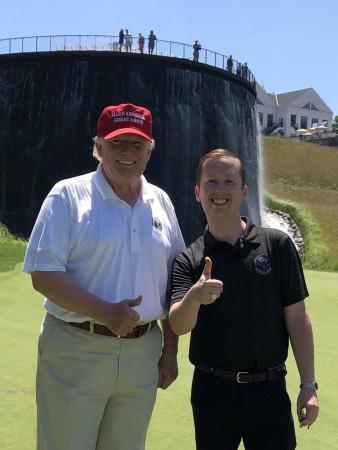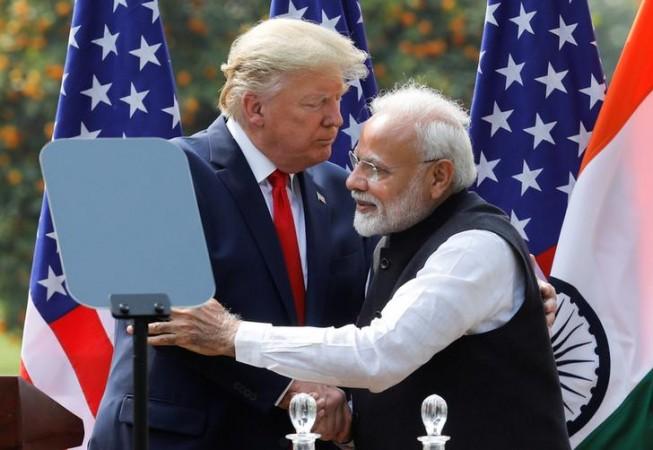
On August 23, 2025, President Donald J. Trump appointed Sergio Gor, his trusted confidant and director of the White House Presidential Personnel Office, as the U.S. Ambassador to India and Special Envoy for South and Central Asian Affairs. This audacious selection, announced seven months into Trump's second term, arrives at a critical juncture for U.S.-India relations, a partnership pivotal to shaping the Indo-Pacific's future amid rising geopolitical tensions and economic recalibrations. Gor, a political operative with no conventional diplomatic credentials, embodies Trump's preference for loyalty over tradition, signaling a strategic intent to recalibrate one of the world's most consequential bilateral relationships. This op-ed explores the implications of Gor's appointment, weaving together its strategic underpinnings, potential pitfalls, and the broader geopolitical context, while reflecting on its significance for an alliance navigating a world in flux.
A Loyalist in New Delhi: The Rationale Behind Gor's Appointment
At 38, Sergio Gor, born in Tashkent, Uzbekistan, is an unconventional choice for the ambassadorship to India. His career, rooted in Republican politics, includes co-founding Winning Team Publishing with Donald Trump Jr. and managing a major Super PAC supporting Trump's campaigns. As director of the Presidential Personnel Office, Gor has overseen the appointment of nearly 4,000 loyalists, ensuring alignment with Trump's "America First" agenda. His selection reflects a deliberate strategy to place a trusted ally in New Delhi, as Trump emphasized on Truth Social: "For the most populous region in the world, I need someone I can trust to deliver on my agenda and help MAKE AMERICA GREAT AGAIN."
Gor's proximity to Trump offers a direct channel to the White House, a potential asset in navigating the complexities of U.S.-India relations. Supporters, including former adviser Steve Bannon, argue that Gor's "walk-in privileges" with the president position him to convey Trump's priorities with clarity. Secretary of State Marco Rubio and Senator JD Vance have endorsed Gor as an "excellent representative," reinforcing his credibility within the administration. Yet, his lack of diplomatic experience and a public dispute with Elon Musk, who called him a "snake" over personnel disagreements, raise questions about his ability to manage the nuanced diplomacy required for India, a rising global power with a fiercely independent foreign policy.
Strains and Strengths in the U.S.-India Partnership
The U.S.-India relationship, often heralded as a cornerstone of Indo-Pacific strategy, faces significant challenges. Trump's imposition of 50% tariffs on Indian goods, including a 25% penalty for India's continued oil purchases from Russia, has strained economic ties. The collapse of trade talks over India's agricultural and dairy sectors further complicates the economic landscape. U.S. Treasury Secretary Scott Bessent's accusation that India is "profiteering" from Russian oil highlights tensions over India's strategic autonomy, particularly its refusal to fully align with Western sanctions and its deepening ties with Russia through the BRICS alliance.
Despite these frictions, the partnership rests on robust foundations. Indian companies invested $3.4 billion in the U.S. in 2024, underscoring economic interdependence. Shared democratic values and mutual concerns about China's assertiveness bolster cooperation, particularly through the Quad framework (U.S., India, Japan, and Australia). Trump's personal rapport with Prime Minister Narendra Modi, forged through past engagements like Modi's 2020 U.S. visit, remains a diplomatic asset. Gor's appointment may aim to leverage this connection, positioning him as a conduit for high-level dialogue to navigate trade disputes and strengthen strategic alignment.

Opportunities and Risks of an Unorthodox Envoy
Gor's nomination presents a dual-edged prospect. His direct access to Trump could streamline communication, facilitating progress on critical issues like defense cooperation and regional security. The U.S.-India security partnership, encompassing joint military exercises and defense technology transfers, has grown significantly, and Gor's ability to advance this agenda could reinforce the alliance's role in countering China. His dual role as Special Envoy for South and Central Asian Affairs, however, introduces complexity. India, sensitive to external involvement in its regional disputes, particularly with Pakistan, may view this broader mandate with skepticism. Posts on X reflect Indian concerns that combining the roles dilutes focus on the bilateral relationship, with some labeling it a "degradation" of diplomatic priority.
Gor's lack of diplomatic experience poses additional risks. His role in blocking Jared Isaacman's nomination to lead NASA, which sparked a public feud with Musk, suggests a prioritization of political loyalty over broader strategic considerations. This approach may struggle to navigate India's complex sensitivities around sovereignty and its historical resistance to U.S. mediation in South Asia. The Senate confirmation process will test Gor's ability to assuage doubts about his readiness for this high-stakes role.
Geopolitical Stakes: Managing an Important Region
Gor's appointment aligns with Trump's transactional foreign policy, which prioritizes economic leverage and loyalist appointments, as seen with David Perdue for China and Mike Huckabee for Israel. Countering China remains a shared U.S.-India priority, but India's regional challenges add layers of complexity. Tensions with Pakistan and the Taliban's return to power in Afghanistan demand careful navigation. Trump's claim of brokering a ceasefire between India and Pakistan, a point of contention in New Delhi, underscores the delicacy of Gor's regional mandate. Any perceived overreach could strain U.S.-India relations, particularly if India views Gor's focus as divided.
The broader geopolitical landscape amplifies the stakes. India's strategic autonomy, exemplified by its BRICS engagement and oil trade with Russia, challenges U.S. expectations of alignment. Yet, the Quad's role in countering China's influence offers a unifying framework. Gor's success will hinge on his ability to build trust with Indian counterparts, balancing Trump's agenda with India's priorities in a region marked by volatility.
A Defining Moment for a Pivotal Alliance
Sergio Gor's appointment as U.S. Ambassador to India is a bold diplomatic pivot that encapsulates the audacity and intricacies of Trump's foreign policy. By entrusting a loyal confidant with this pivotal role, Trump seeks to assert control over a relationship central to U.S. interests in the Indo-Pacific. Gor's ability to translate loyalty into effective diplomacy will determine whether he can bridge trade disputes, strengthen strategic cooperation, and navigate South Asia's complexities. For India, this moment offers a chance to leverage Trump's personal rapport with Modi to advance mutual goals, while safeguarding its strategic autonomy.
As the U.S. and India stand at a crossroads, Gor's tenure will test whether loyalty can substitute for experience in steering a partnership that shapes the global order. In an era of geopolitical reckoning, where alliances are tested by economic frictions and regional uncertainties, this appointment is more than a diplomatic choice; it is a wager on the power of trust to forge a resilient future. The world watches as Gor steps into New Delhi, bearing the weight of a relationship that could define the 21st century.
[Major General Dr. Dilawar Singh, IAV, is a distinguished strategist having held senior positions in technology, defence, and corporate governance. He serves on global boards and advises on leadership, emerging technologies, and strategic affairs, with a focus on aligning India's interests in the evolving global technological order.]










